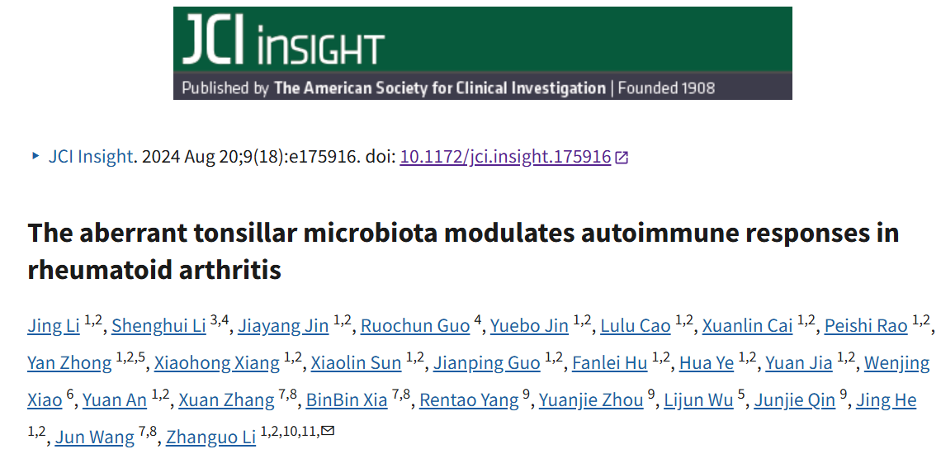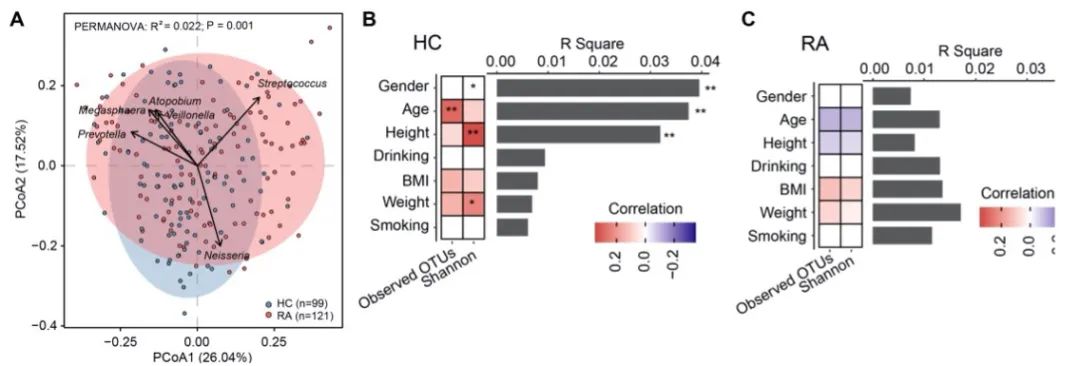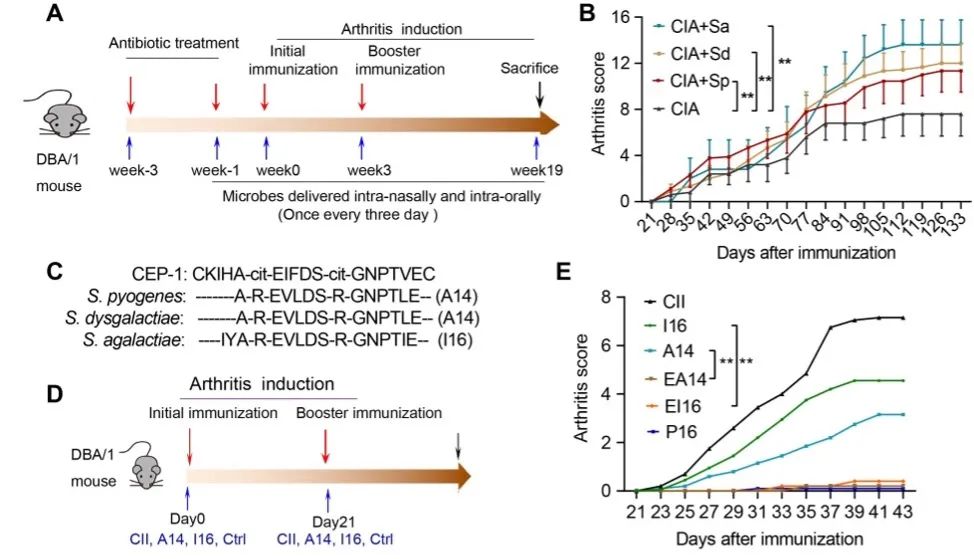Rheumatology and Immunology | New Discoveries from Prof. Li Zhanguo's Team and His Collaborator on the Immune Regulation of Tonsillar Microbiota and Its Role in the Pathogenesis of Rheumatoid Arthritis
扁桃体菌群的免疫调节及其在类风湿关节炎发病中的作用:栗占国课题组与合作者新发现
2024-11-08
Recently, the research team led by Professor Li Zhanguo from the Department of Rheumatology and Immunology at Peking University People's Hospital (PKUPH), in collaboration with Professor Wang Jun’s team from the Institute of Microbiology of the Chinese Academy of Sciences (IMCAS), published a study titled "The aberrant tonsillar microbiota modulates autoimmune responses in rheumatoid arthritis" in the journal JCI Insight online. Associate researchers Li Jing and Jin Jiayang from the same department at PKUPH and Professor Li Shenghui from China Agricultural University (CAU) are co-first authors. Professors Li Zhanguo from PKUPH, He Jing from PKUPH and Wang Jun from IMCAS are co-corresponding authors. The research has gained strong support from various scientific funding programs.

JCI Insight is a prestigious academic journal publishing well-executed, high-quality studies that provide meaningful contributions to the understanding of the biology and treatment of disease, with an emphasis on clinically relevant basic and translational research. It is self-published by the American Society for Clinical Investigation (ASCI), a nonprofit honor organization of physician-scientists established in 1908. The journal serves to fulfill the ASCI’s objective to advance medical science through the publication of clinically relevant research reports.
This research focused on the immune regulatory role of the tonsillar microbiota, identifying how the tonsillar microbiota dysbiosis and Streptococcus dysbiosis can promote and inhibit arthritis development by modulating autoimmune responses. The findings may inspire a new therapy for rheumatoid arthritis (RA).
The palatine tonsils are the only air-contacted lymphoid organs that constantly engage in crosstalk with commensal microorganisms and serve as the first handling sites against microbial antigens. The balance of the microbiota is closely linked to the development of autoimmune diseases. While tonsil inflammations have been implicated in various autoimmune diseases, including rheumatoid arthritis (RA), the precise role of tonsillar microbiota in autoimmune pathogenesis remains inadequately characterized.

The team discovered that Salivaricin, an antimicrobial peptide (AMP) derived from the tonsillar microbiota, plays an important immune-regulatory role in the pathogenesis of RA in their earlier study. Following this, they profiled the tonsillar microbiota and identified a notable dysbiosis in patients with RA, particularly within the Streptococcus genus. Specifically, patients with RA exhibited an enrichment of pathogenic Streptococcus species, including S. pyogenes, S. dysgalactiae, and S. agalactiae. Colonization with these bacteria significantly exacerbated arthritis severity and increased autoimmune responses in collagen-induced arthritis (CIA). Furthermore, immunization with peptides derived from these pathogenic Streptococcus species directly induced experimental arthritis. Conversely, patients with RA demonstrated a marked deficiency in commensal Streptococcus members, notably S. salivarius. Treatment of CIA mice with S. salivarius attenuated the progression of arthritis and downregulated autoimmune responses.

Currently, the treatment of RA primarily focuses on symptom relief rather than addressing the underlying causes. This study is the first to investigate the immune mechanisms of tonsillar microbiota in the pathogenesis of rheumatoid arthritis. It demonstrated the essential role of the tonsillar microbiota in maintaining immune balance and elucidated the immune-regulatory mechanisms of Salivaricin in RA development.
These findings highlighted a pathogenic link of tonsillar microbiota with RA, shedding light on their contribution to autoimmunity. The study may provide a new perspective on RA treatment by offering a strategy to adjust the tonsillar microbiota, particularly by restoring Streptococcus balance, which could lead to novel treatments for RA.
Paper Link: https://pubmed.ncbi.nlm.nih.gov/39163137/

